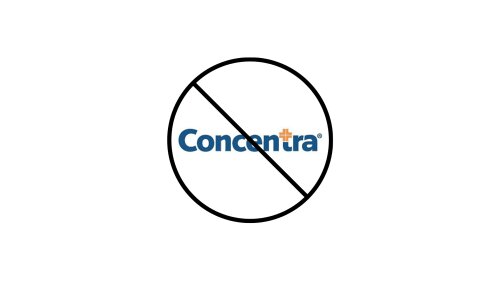Best Toxic Mold Lawyers in San Bernardino
Share your needs with us, get contacted by law firms.
Free. Takes 2 min.
List of the best lawyers in San Bernardino, United States
About Toxic Mold Law in San Bernardino, United States:
Toxic mold is a serious issue in San Bernardino, United States, with many properties experiencing mold growth due to the warm climate and high humidity levels. Mold exposure can lead to a variety of health problems, including respiratory issues, allergies, and even neurological symptoms. In order to address mold-related issues, it is important to understand the legal aspects surrounding toxic mold and how to seek help if you are affected.
Why You May Need a Lawyer:
If you are dealing with toxic mold in your home or rental property, you may need a lawyer to help you navigate the complex legal issues that come with mold exposure. Common situations where you may require legal help include landlord-tenant disputes over mold remediation, insurance claims for mold damage, and personal injury claims for mold-related health issues. A lawyer can help protect your rights and ensure you receive appropriate compensation for any damages incurred.
Local Laws Overview:
In San Bernardino, United States, there are specific laws that address toxic mold issues. Landlords are required to maintain rental properties in a habitable condition, which includes addressing mold problems. Tenants have the right to request mold remediation if it is affecting their health or safety. Additionally, homeowners may have legal recourse against contractors or builders who have constructed their property improperly, leading to mold growth. It is important to consult with a legal expert to understand your rights under local laws.
Frequently Asked Questions:
1. What are the health risks associated with toxic mold exposure?
Exposure to toxic mold can lead to respiratory issues, allergies, skin irritation, and even neurological symptoms in some cases.
2. Who is responsible for mold remediation in a rental property?
Landlords are generally responsible for addressing mold issues in rental properties to ensure a safe and habitable living environment for tenants.
3. How can I prove that mold exposure has caused my health issues?
You may need to consult with a medical professional who can diagnose your symptoms and provide documentation linking them to mold exposure. A lawyer can help you gather evidence to support your claim.
4. Can I sue my landlord for mold exposure?
If your landlord has failed to address a mold problem that is affecting your health and safety, you may have grounds to sue for damages. It is important to consult with a lawyer to discuss your options.
5. What should I do if I discover mold in my home?
If you discover mold in your home, it is important to document the issue with photos and notify your landlord or property owner immediately. They should arrange for mold remediation to address the problem.
6. Is it necessary to hire a lawyer for a mold-related insurance claim?
Hiring a lawyer can be beneficial for navigating the complexities of an insurance claim and ensuring you receive fair compensation for mold damage. A lawyer can also help negotiate with insurance companies on your behalf.
7. What are my rights as a tenant in regards to mold remediation?
As a tenant, you have the right to request mold remediation if it is affecting your health or safety. Your landlord is generally responsible for ensuring the property is safe and habitable.
8. Can mold growth be prevented in rental properties?
Mold growth can be prevented by maintaining proper ventilation, addressing water leaks promptly, and keeping humidity levels low in the property.
9. How long does it take to resolve a mold-related legal case?
The timeline for resolving a mold-related legal case can vary depending on the complexity of the issue and whether it goes to court. It is important to work with a lawyer who can guide you through the process.
10. Are there any government agencies that can help with mold-related issues?
The Environmental Protection Agency (EPA) and the California Department of Public Health (CDPH) provide resources and guidance on mold prevention and remediation. You can also contact local health departments for assistance with mold issues.
Additional Resources:
- Environmental Protection Agency (EPA): www.epa.gov/mold - California Department of Public Health (CDPH): www.cdph.ca.gov/Programs/CCDPHP/DEODC/IAQ/Pages/Mold.aspx
Next Steps:
If you are dealing with toxic mold issues in San Bernardino, United States, it is important to seek legal advice from a qualified attorney who specializes in mold-related cases. They can help assess your situation, advise you on your rights, and guide you through the legal process to ensure you receive the appropriate assistance and compensation for any damages incurred. Don't hesitate to reach out for help if you are facing mold-related challenges.
Lawzana helps you find the best lawyers and law firms in San Bernardino through a curated and pre-screened list of qualified legal professionals. Our platform offers rankings and detailed profiles of attorneys and law firms, allowing you to compare based on practice areas, including Toxic Mold, experience, and client feedback.
Each profile includes a description of the firm's areas of practice, client reviews, team members and partners, year of establishment, spoken languages, office locations, contact information, social media presence, and any published articles or resources. Most firms on our platform speak English and are experienced in both local and international legal matters.
Get a quote from top-rated law firms in San Bernardino, United States — quickly, securely, and without unnecessary hassle.
Disclaimer:
The information provided on this page is for general informational purposes only and does not constitute legal advice. While we strive to ensure the accuracy and relevance of the content, legal information may change over time, and interpretations of the law can vary. You should always consult with a qualified legal professional for advice specific to your situation.
We disclaim all liability for actions taken or not taken based on the content of this page. If you believe any information is incorrect or outdated, please contact us, and we will review and update it where appropriate.











